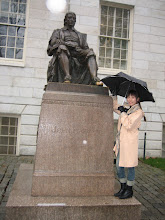The one thing common to most job applications is the curriculum vitae (CV) or resume. This two to three page document is expected to contain the applicant’s employment history, special achievements and relevant personal details. Unfortunately, many applicants fail to craft their CVs properly and end up failing to snag a job interview. Here are the top five mistakes that job applicants make when they design their CVs:
1. Too fanciful
Many job applicants think that the CV is an invitation card or a fashion art piece. They put in fanciful fonts, insert little shapes and pictures, and even change the font sizes, all the time thinking that this demonstrates creativity on their part. However, it is important to remember that the CV is actually a formal document for your future employer’s consideration. It may not sit very well with an executive recruiter who is short of time and just wants simple facts. Besides that, an overly fanciful CV may also tell the recruiter that the applicant is not professional and is not serious about the job.
2. Too long-winded
Some job applicants have significant job experiences. When they write their CVs, they list all their previous positions and make a long list of the responsibilities that they held in each position. This makes their CV long and boring, especially for the recruiter who has to read through hundreds of CVs. Besides, over-emphasizing your job responsibilities may also make you seem like a show-off.
3. Too personal
Some job applicants think that the more personal details they give, the more accessible they will appear to the recruiter. They put in details such as their NRIC number and all their contact number. Some of these details are not even useful when the recruiter assesses the candidates’ suitability for the job. Another problem is that the applicant’s privacy may be compromised if overly private information like the NRIC number is available to many companies at a time.
4. No contact details
There are job applicants who prepare well-written CVs with most of the important details such as, employment history, references and education history, and everything except their contact information. Imagine an employer looking through such a CV. He/she is impressed by the candidate’s accomplishments and experience. He/she is about to ring the candidate’s up for an interview. And lo and behold, there is no contact number on the document. And there is nothing on the cover letter either. Even with the best intentions, the recruiter will never be able to meet this candidate.
5. Not job-specific
The average job-seeker submits his/her CV to more than one company, by using the same document for all his/her job applications. In this cookie-cutter CV, the candidate tends to list all his/her skills and experience. But this is useless to the employer if he/she is looking for a candidate who can fulfill specific job requirements, but all the skills listed in the CV are not relevant to the job. This is very important point that applicants have to remember. Design a CV for each job, tailoring the information to meet its specific requirements.
Important tips to remember, writing a CV is not a walk in a park, so don’t just list all the information without a thought. Always make sure your CV has enough relevant details to interest the hiring manager without overwhelming the hiring manager. Moreover, make sure there are no spelling and vocabulary errors that may compromise your chances of getting a job interview. In additional, when you are crafting your CV or updating it, bear these points in mind for a better chance at impressing prospective employers.
Bibliography:
1. Article by Linus Tham, founder and director of the C.V Plus Group, a CV writing and design consultancy.
2. “Beware The Top Five Blunders.” The Star Metro Classifieds. [































+080.jpg)



